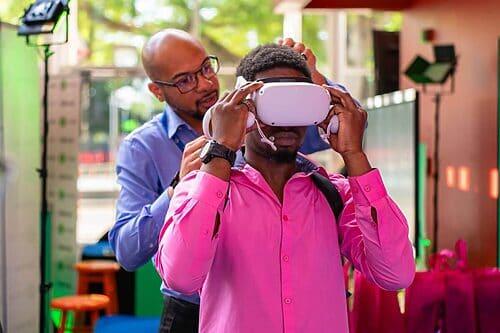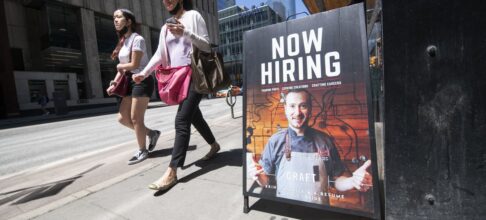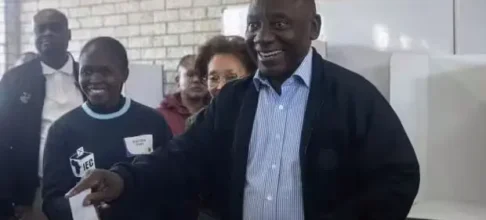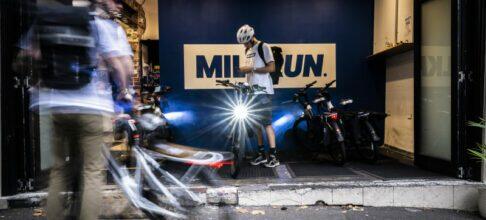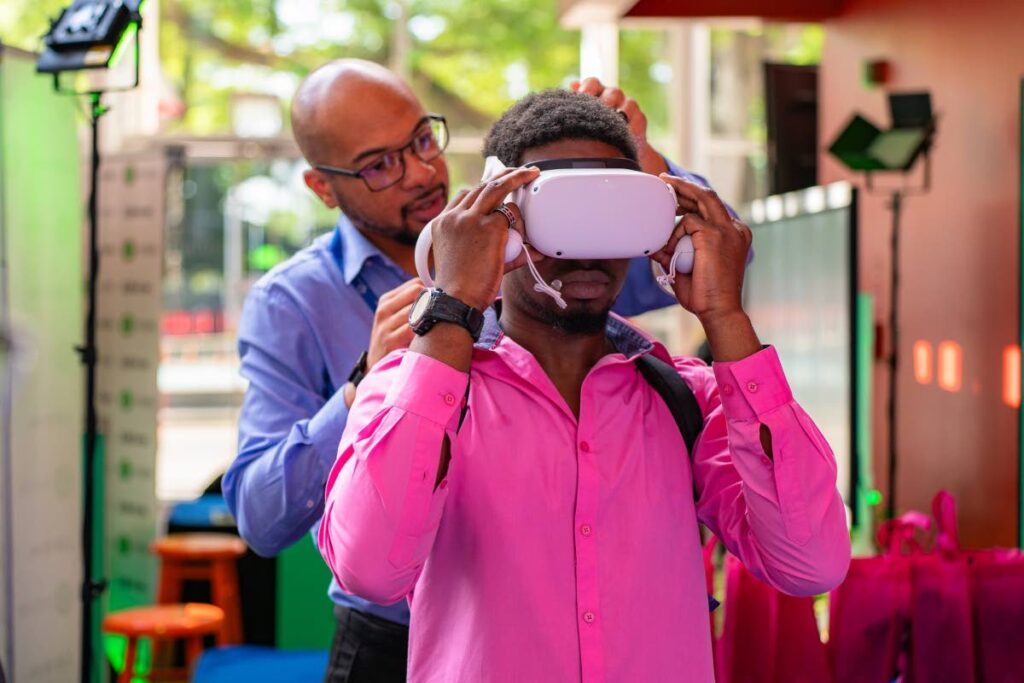
THE Incorporation of AI into Carnival can improve the festival, but failure to leverage the technology can lead to loss of employment in the future.
These were some of the comments made by the panel at the Queen's Hall Together AI Symposium held on September 18 on the topic, H-A.I. Mas: the potential impact of Artificial Intelligence on T&T Carnival.
The panel featured Lost Tribe band producer/designer Valmiki Maraj, Advance Dynamics technical director Alvern Porter, Caesar's Army CEO Jules Sobion, University of Trinidad and Tobago programme leader of Carnival Studies Dr Kela Francis, and entertainment and sports lawyer Carla Parris.
Maraj said he and his team are excited by the possibility of AI and reported they have been using AI to help pull and categorise his many designs. He recalled they had to do a mock-up for the opening of the Commonwealth Games but none of his designers were available and they used AI to generate it.
"And I was absolutely amazed that in a short period of time I was able to give a possibility to my client."
Asked by panel moderator and media personality Jayron "Rawkus" Remy if people should be concerned that certain jobs will be replaced by AI, Maraj replied he did not think so. He said he has seen a couple of times when there were technology jumps and people feared they would lose their jobs.
"What it forces us to do...is to develop a different set of skills and it forces us to look at the world in a different way."
He said many of his graphic designers complain that he comes to them with too much rudimentary work such as the design of a party invite.
"I cannot speak for the future to say nobody is going to lose their jobs. But...if we ever stand in the face of adversity and change and evolution and do nothing we will be displaced."
Maraj said TT mas is kinetic and while AI can generate an idea and place it on paper to understand a space and how a costume moves on a body requires a skilled professional.
Porter also chimed in and said that as with the 80s, when people who could only use typewriters were replaced by those who were computer literate, some jobs will be replaced by AI. He recalled he used AI to generate a mango juice advertisement.
"Unfortunately, in the next five to ten years either you are able to leverage AI to make your company better or a lot of people going to be unemployed."
On the use of AI, he stressed that it is an assistant and is not a replacement for human skills.
A game changer
Sobion said he had not really seen the use of AI per se in Carnival, but from an events standpoint Caesar's Army uses it for customer service and data collection.
"Caesar's Army is very community-driven and having data is particularly key. We can understand that from TT Carnival as well. We don't have the data to even understand holistically what Carnival represents to us and that deep dive...and analytical approach."
He said from a Carnival standpoint the sky is the limit when it comes to costume design and the best route, while from an events perspective, understanding and analysing data would be a game changer not for the festival but for the stakeholders represented.
He added his interest was how AI would be able to assist him in taking his brand globally.
Francis said critical thinking skills were being lost with or without AI and with new technology there was a tendency for laziness.
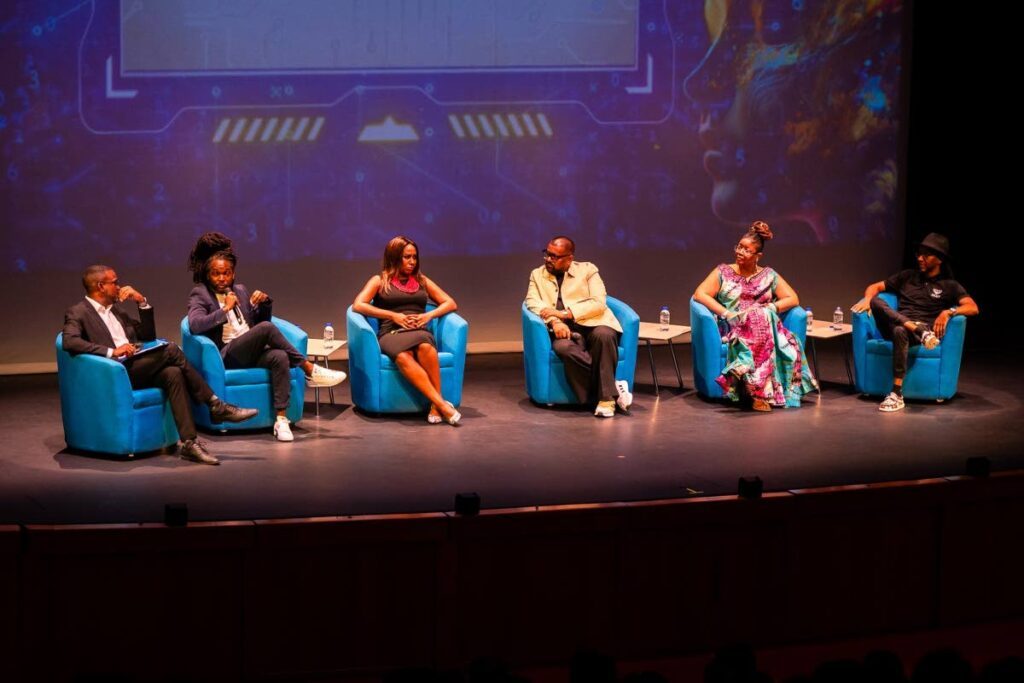
"We have to be careful how we use it."
On the use of AI to finding the most efficient Carnival route, she explained the current anti-clockwise route was based on ancestral cosmology, specifically Bantu and the crossroads.
"We start at the setting sun, the sun that represents us dying, because Carnival is a funeral into a rebirth. So, we start at the funeral, we go into the underworld, and we dawn at the peak at the Queen's Park Savannah."
She said AI would be able to pull the book or cosmology but cannot tell a feeling.
"A lot of people who are in charge of planning Carnival don't necessarily know the rituals."
AI and copyright
Remy opened the panel by playing an AI generated song in the style of Kes The Band which sounded very similar to a song from the popular band and lead singer Kees Dieffenthaller.
"Kees had no actual involvement in this. But it is something that resembles his voice and something that resembles a style he would have written in before. Does the law have any precedent when it comes to AI and intellectual property?"
Parris responded that AI is such a new and evolving technology that intellectual property law had not yet come up with anything firm in how to treat with it.
"However, there are some basic intellectual property standards."
She explained a melody is owned by someone if an AI is reproducing a melody from an original song, then there is some level of intellectual property infringement. She pointed out that an AI-generated song in the style of Canadian rapper Drake had to be taken down from online when the singer's record label issues a cease and desist.
Upscaling Carnival
Director Al, automation and analytics at INCUS Services Leslie Lee Fook, in his keynote address, said the symposium was the first AI dedicated event in the Caribbean.
He said there are more than 30 locations across the world that offer carnival.
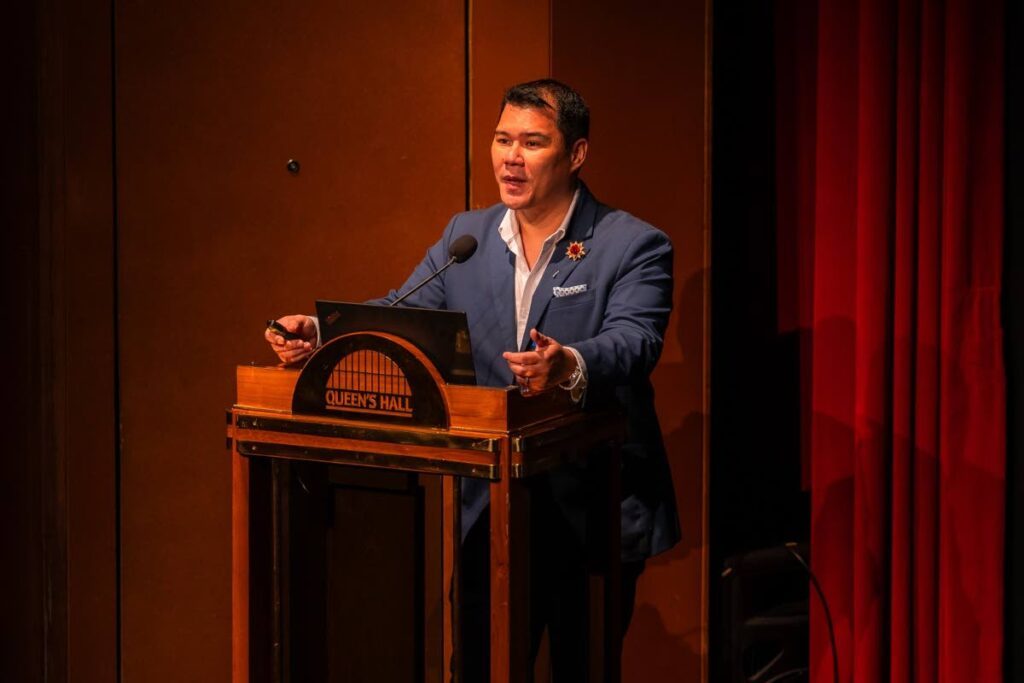
"But who has the best carnival in the world?"
"Trinidad and Tobago," attendees responded.
"Absolutely, TT. But what does that mean for us? What does that mean for you and I?"
He said in 2023, TT Carnival was worth $419 million or about US $61 million and attracted 27,000 visitors. He pointed out that people typically compare Trinidad Carnival with carnival in Rio de Janeiro, Brazil. Lee Fook reported Brazil generated one billion dollars and attracted 80,000 visitors.
"Brazil attracted three times as many people even though we have the best carnival in the world. They generated 16 times the revenue."
He added: "Being the best doesn't define your worth."
He said when it comes to AI and TT Carnival it can assist with three things: customer service, creativity and innovation, and operational cost. Lee Fook pointed out his company recently launched a chatbot with Carnival band Tribe.
"And their problem is 30,000 people contacting them on the same day. And this AI is trained to answer 80 per cent of the questions that anybody asks. They will do it in a compassionate way, they will do it in a helpful way. It's not going to be tired, it's not going to be sleepy, it's not going to be dealing with a hangover."
He also said AI can produce a mas design process from idea to sections in four minutes what would normally take 11 months and demonstrated the process onscreen.
"Even if you didn't like that stuff we are able to churn it out really, really quickly. And this is the worst AI will ever be. It's only going to get better."
He predicted that in the next couple of years 80 per cent of jobs would be affected by AI.


